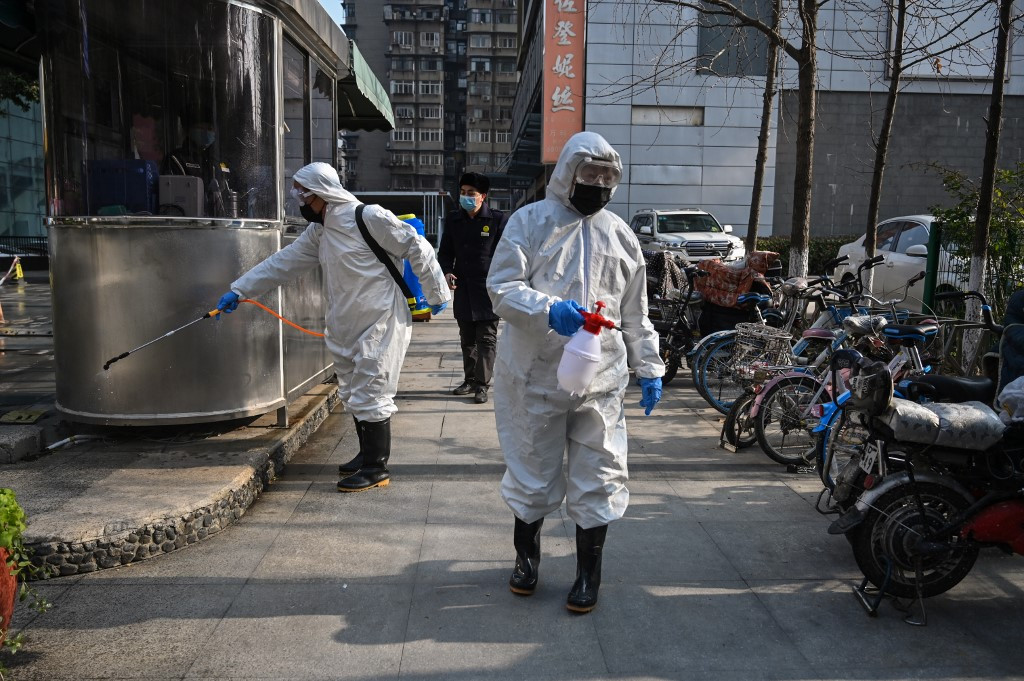Popular Reads
Top Results
Can't find what you're looking for?
View all search resultsPopular Reads
Top Results
Can't find what you're looking for?
View all search resultsIndonesia’s Pacific neighbors escalate coronavirus measures
Change text size
Gift Premium Articles
to Anyone
I
ndonesia’s Pacific neighbors are taking extreme measures to prevent the introduction of the novel coronavirus, which could wreak havoc on health systems already struggling to contain various epidemics.
The virus, which originated in the Chinese city of Wuhan, has already killed 213 people and infected 9,600 people across 21 countries, according to the latest figures on Friday, prompting the World Health Organization to declare a global health emergency.
Samoa, which is still recovering from a measles epidemic in which 83 people were killed, has implemented travel restrictions on visitors arriving on flights from Mainland China to create a two-week quarantine buffer.
“All travelers originating from or [on] transit through Mainland China must spend at least 14 days in self-quarantine at the country of last port that is free of the 2019 novel coronavirus and must undergo medical clearance [for] at least three days as required above prior to final route to Samoa. This must be their final stop before traveling to Samoa,” the government announced in a statement on Monday.
Travelers from all countries with confirmed cases of the virus must also undergo a medical examination with a medical practitioner at least three days before traveling to Samoa. The medical clearance is required for check-in prior to the issuance of a boarding pass.
According to Samoa’s Press Secretariat, 13 people – most of them Chinese nationals – have already been denied entry since the travel restrictions came into force on Jan. 24.
Four Chinese nationals were returned to Fiji on Tuesday after arriving in Samoa from China via Nadi.
The Samoan Foreign Ministry has confirmed that it will not be repatriating the six Samoan students studying in Wuhan, saying that they are under the care of their universities alongside 70 other Pacific students.
The Fijian government however has not issued travel restrictions, saying that travel bans were proven to be ineffective in stopping infectious diseases crossing borders and that it would focus on “detection and response” methods instead.
“This is because international spread of the disease is best stopped by rapid containment efforts at the source, and early detection and response, not by implementing unnecessary restrictions to international travel,” the Fijian government said in a statement on Wednesday.
“In response to the increased threat of 2019 – nCoV, the Fijian Ministry of Health and Medical Services is working closely with relevant government ministries, the World Health Organization and partners to enhance its public health systems to rapidly detect, test and respond if a case is identified in Fiji,” it said.
Meanwhile, Papua New Guinea has announced a travel ban for all visitors arriving from Asian ports. In a statement on Wednesday, the Immigration and Border Security Ministry said staff will be stationed at main points of entry into the country to ensure that anyone who has been to China in the last 14 days will not be permitted entry.
The Wutung border post at Papua New Guinea's land border with Indonesia’s Papua province has also been closed temporarily and Chinese fishing vessels are being restricted.
The Marshall Islands, the Northern Mariana Islands and Palau have also banned travelers from China with similar 14-day quarantine restrictions in place, AFP reported.
The Northern Mariana Islands declared a "state of significant emergency" on Thursday with Governor Ralph Torres saying in a statement that the virus "poses a significant and imminent threat".
The Marshall Islands has already been battling a dengue epidemic with over 1,400 suspected cases reported out of a population of 53,127, according to a government report.
While no cases of the coronavirus have been confirmed in any Pacific Island state, the restrictions may come at a heavy price for their economies, which rely heavily on Chinese tourism and development through the Belt and Road initiative – China’s ambitious investment and infrastructure push across the region.
Indonesia has also yet to report any confirmed cases of the virus.
– The writer is an intern under the ACICIS program.










